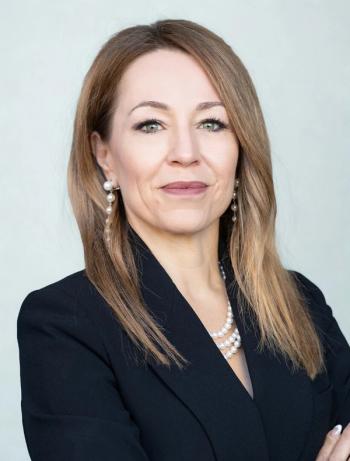
Don Dizon, MD, on Improving Treatment Strategies for Transgender Patients With Cancer
Don Dizon, MD, FACP, FASCO, discusses the need to improve treatment strategies for transgender patients with cancer.
In an interview with CancerNetwork®, Don Dizon, MD, FACP, FASCO, director of women’s cancers at the Lifespan Cancer Institute, director of medical oncology at Rhode Island Hospital, and professor of medicine at the Warren Alpert Medical School of Brown University in Providence, highlighted that more research needs to be done to determine whether it is safe for transgender patients to continue receiving gender-affirming therapy while being treated for cancer. In particular, patients with endocrine-responsive tumors may be an area of concern, Dizon stated.
Transcript:
[In terms of treatment guidance], parts of it are fairly clearer than others—for example, chemotherapy, which doesn't depend on an endocrine access. It is used in women with cancer, and it's used in situations [for] men with cancer; these are [factors] that don't or shouldn't impact if someone's on gender-affirming hormone therapy; however, it's still important to note that. The bigger area of concern is for those who have those endocrine-responsive tumors. What do you do with the gender-affirming therapy after they've been diagnosed with that hormone-responsive tumor? [For] a woman coming in on combined hormone therapy—estrogen and progesterone—with breast cancer, we are going to recommend she stop hormone therapy. Do you apply that same standard to men or to transgender women on gender-affirming therapy? No one really knows. But what we do have is data from population studies in Europe, for example, that show people on gender-assigned hormone therapies don't seem to have an increased risk of cancers on those therapies.
What we need to do is collect the data. At its most basic, we need to select what types of gender-affirming therapy transgender people are on and the duration. Then in terms of what to do with our therapies beyond that, I think we need to [determine] how they are doing on those treatments. I am loath to say that they should be recommended to stop without any data at all saying their survival is negatively impacted. It's important to say that, because you're asking people to choose [between] life with the threat of cancer coming back, or life with a lower threat of cancer coming back, but as the gender they don't see themselves as. That's a huge thing.
Newsletter
Stay up to date on recent advances in the multidisciplinary approach to cancer.





































